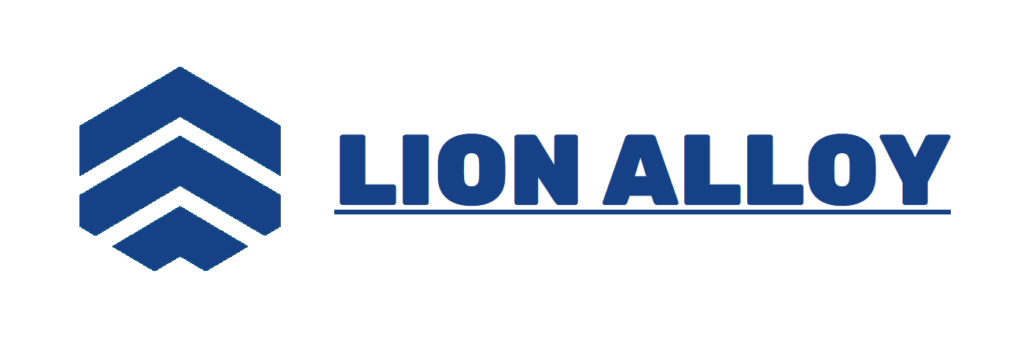UDIMET® ALEAY 720 Introducción al producto
UDIMET® Alloy 720 es un Superalloy de alta fuerza basado en níquel conocido por sus excelentes propiedades mecánicas y resistencia a los ambientes de alta temperatura. Este artículo proporciona una introducción integral a la aleación de UDIMET® 720, que cubre su composición química, propiedades mecánicas, rendimiento a diferentes temperaturas, aplicaciones de la industria, formas y tamaños, estándares de producción, capacidades de soldadura y procesamiento, ventajas y desventajas, y una comparación con aleaciones similares.
Composición química
La aleación UDIMET® 720 se compone principalmente de níquel con adiciones significativas de cobalto, cromo, hierro y otros elementos para mejorar sus propiedades mecánicas y térmicas:
| Elemento | Composición (%) |
|---|---|
| Níquel (Ni) | 59.0 - 63.0 |
| Cobalto (Co) | 17,0 – 21,0 |
| Cromo (Cr) | 15.0 - 17.0 |
| Hierro (Fe) | 3,0 – 5,0 |
| Molibdeno (Mo) | 1,5 – 2,5 |
| Tungsteno (W) | 0.5 - 1.5 |
| Aluminio (Al) | 0.5 - 1.5 |
| Titanio (Ti) | 0.5 - 1.5 |
| Boro (b) | 0.003 - 0.01 |
| Carbono (C) | 0.08 máx. |
Propiedades mecánicas
La aleación UDIMET® 720 exhibe excelentes propiedades mecánicas adecuadas para aplicaciones de alta temperatura:
| Propiedad | Valor |
|---|---|
| Resistencia a la tracción, ksi (MPa) | 170 - 190 (1172 - 1310) |
| Límite elástico (0,2 % de compensación), ksi (MPa) | 120 - 140 (827 - 965) |
| Alargamiento (% en 2 pulgadas) | 15 - 20 |
| Dureza, Rockwell C (HRC) | 35 - 40 |
Características de presentación
UDIMET® Alloy 720 ofrece varias ventajas de rendimiento:
- Fuerza de alta temperatura: Retiene excelentes propiedades mecánicas a temperaturas elevadas de hasta 1000 ° C (1832 ° F).
- Resistencia a la oxidación: Proporciona una buena resistencia a la oxidación y la corrosión de alta temperatura en varios entornos.
- Resistencia a la fluencia: Exhibe una alta resistencia a la fluencia, lo que lo hace adecuado para aplicaciones bajo estrés constante a altas temperaturas.
Aplicaciones industriales
UDIMET® Alloy 720 se utiliza en diversas industrias que requieren un alto rendimiento en condiciones extremas:
| Sector industrial | Aplicaciones |
|---|---|
| Aeroespacial | Los componentes de la turbina de gas, como las palas de la turbina, las paletas y los discos. |
| Generación de energía | Componentes de turbina de gas y vapor, cámaras de combustión e intercambiadores de calor. |
| Procesamiento químico | Vasos de reactores, intercambiadores de calor y tuberías que manejan productos químicos corrosivos a altas temperaturas. |
Formas y tamaños
UDIMET® Alloy 720 está disponible en varios formularios y tamaños para cumplir con los requisitos de aplicación específicos:
- Formas: Chapas, placas, barras, forjados y alambres.
- Tamaños: Espesores que van desde 0,5 mm hasta 100 mm para placas y diámetros que van desde 1 mm hasta 300 mm para barras redondas.
Estándares de producción
UDIMET® Alloy 720 se ajusta a los estándares de producción internacionales que garantizan calidad y confiabilidad:
| Formulario de producto | Formas disponibles | Tamaños disponibles | Estándares de producción |
|---|---|---|---|
| Platos/Hojas | Hojas, Placas | Espesor: 0,5 mm – 100 mm | ASTM B637, AMS 5764 |
| Barras/varillas | Barras redondas, barras cuadradas | Diámetro: 1mm – 300mm | ASTM B637, AMS 5764 |
| Forjas | Bloques, Discos, Anillos | Tamaño: Personalizado | ASTM B637, AMS 5764 |
Soldadura y procesamiento
UDIMET® Alloy 720 ofrece una buena soldabilidad y características de procesamiento:
- Soldadura: Se puede soldar utilizando métodos como TIG, MIG y soldadura de resistencia. Se puede requerir tratamiento térmico de precalentamiento y post-soldado para mantener las propiedades.
- Maquinabilidad: Generalmente mecanizado en la condición de recanse de solución utilizando herramientas de carburo y fluidos de corte apropiados.
Ventajas y desventajas
| Aspecto | Detalles |
|---|---|
| Ventajas | Alta resistencia y resistencia a temperaturas elevadas, excelente resistencia a la oxidación, buena resistencia a la fluencia y disponibilidad en diversas formas y tamaños. |
| Desventajas | Un costo más alto en comparación con las aleaciones de níquel estándar, requiere un procesamiento y manejo especializados debido a su alta resistencia y elementos de aleación. |
Comparación con aleaciones similares
UDIMET® Alloy 720 (UNS N07200) a menudo se compara con otras superaliones de níquel de alta resistencia como UDIMET® Alloy 718 y UDIMET® Alloy 625. Aquí hay una breve comparación:
| Tipo/propiedad de aleación | UDIMET® aleación 720 | Aleación de udimet® 718 | Aleación de Dimet® 625 |
|---|---|---|---|
| Composición química | Níquel alto, cobalto, cromo, con elementos de aleación adicionales para la resistencia a la alta temperatura. | Alto níquel, cromo y niobio con adiciones más pequeñas de aluminio y titanio. | Alto níquel, cromo y molibdeno con niobio y tantalio para resistencia y resistencia a la corrosión. |
| Propiedades mecánicas | Mayor resistencia a la tensión y un rendimiento, resistencia superior a la fluencia a altas temperaturas. | Mayor resistencia a la tracción y el rendimiento en comparación con la aleación de Udimet® 720, buena resistencia y resistencia a la fatiga. | Menor resistencia a la tensión y el rendimiento, una excelente resistencia a la fatiga y una buena resistencia a la corrosión en diversos entornos. |
| Aplicaciones | Turbinas de gas, componentes aeroespaciales que requieren resistencia a alta temperatura y resistencia a la oxidación. | Componentes aeroespaciales, pernos de alta temperatura y sujetadores. | Equipo de procesamiento químico, aplicaciones marinas y componentes aeroespaciales que requieren resistencia a la corrosión. |
Este artículo detallado presenta la aleación de UDIMET® 720, destacando su composición química, propiedades mecánicas, características de rendimiento, aplicaciones de la industria, formularios y tamaños disponibles, estándares de producción, capacidades de soldadura y procesamiento, así como ventajas, desventajas y una comparación con aleaciones similares. Los ingenieros y profesionales que buscan una superalloy robusta y de alta resistencia para aplicaciones exigentes en industrias aeroespaciales, generación de energía y procesamiento químico encontrarán la aleación UDIMET® 720 adecuada para su uso en condiciones extremas.


